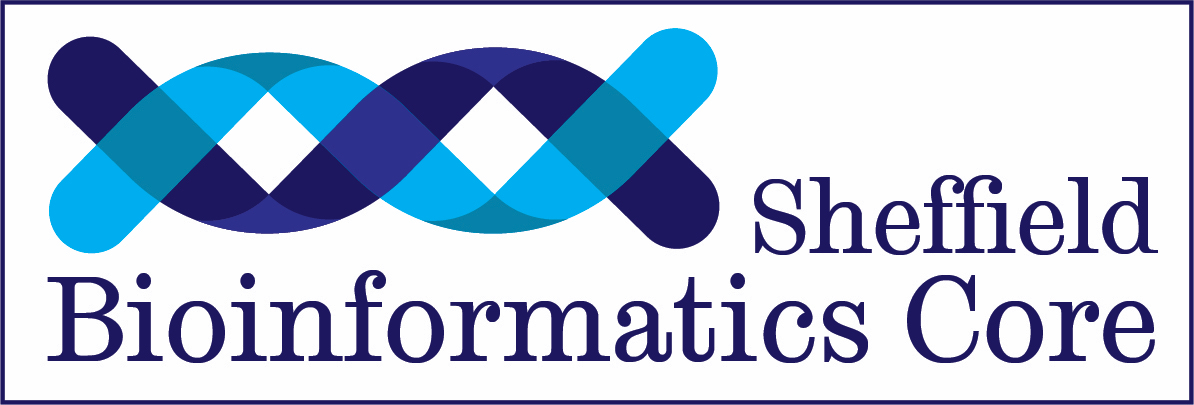Tuesday 3rd October 09:30 - 16:30
Barber House Boardroom, The University of Sheffield (PROVISONAL), or online, Book here
Some basic R knowledge is assumed (and is essential). Without it, you will struggle on this course. If you are not familiar with the R statistical programming language we strongly encourage you to work through an introductory R course before attempting these materials. We recommend reviewing Parts 1 and 2 of our R introductory course before deciding if you can attend
You can sign-up to attend either in-person or online using this link
Recent advances in gene expression technologies have made it possible to measure transcription for individual cells - enabling researchers to understand cellular heterogeneity and understand complex tissue types. In this course we describe the analysis of data derived from such experiments using the R language.
We will focus specifically on data generated using the 10X protocol, although the methods will relevant to other technologies
Researchers in life sciences who want to get an appreciation for the computational steps involved in Single-cell RNA-seq analysis, and how to execute best-practice RNA-seq workflows in R.
1) First, install both R and RStudio for your operating system.
Install R by downloading and running this .exe file from CRAN. Also, please install the RStudio IDE. Note that if you have separate user and admin accounts, you should run the installers as administrator (right-click on .exe file and select “Run as administrator” instead of double-clicking). Otherwise problems may occur later, for example when installing R packages.
Install R by downloading and running this .pkg file from CRAN. Also, please install the free RStudio IDE
You can download the binary files for your distribution from CRAN. Or you can use your package manager (e.g. for Debian/Ubuntu run sudo apt-get install r-base and for Fedora run sudo yum install R). Also, please install free the RStudio IDE.
2) Please download and extract (un-zip) this zip file into the directory on the computer that you wish to work in
3) Type the following into the R console to install some extra R packages required for the workshop
source("https://raw.githubusercontent.com/sheffield-bioinformatics-core/scrnaseq_course/main/install_packages.R")
Mac Users may get the following error message when trying to install these packages
xcrun error: inactive developer path (/Library/Developer/CommandLineTools), missing xcrun at:.....
If this is the case, you will need to follow the instructions from this link to install “Xcode”
Window users might get a message that Rtools is required. This shouldn’t be necessary, but you might need it for other packages. It can be installed here:-
https://cran.r-project.org/bin/windows/Rtools/
For queries relating to collaborating with the Bioinformatics Core team on projects: bioinformatics-core@sheffield.ac.uk
Join our mailing list so as to be notified when we advertise talks and workshops by subscribing to this Google Group. You can also connect with us on Linkedin.
Requests for a Bioinformatics support clinic can be made via the Research Software Engineering (RSE) code clinic system. This is monitored by Bioinformatics Core staff, so we will ensure the appropriate expertise (which may involve individuals from multiple teams) will be available to help you
Queries regarding sequencing and library preparation provision at The University of Sheffield should be directed to the Multi-omics facility in SITraN or the Genomics Laboratory in Biosciences.
